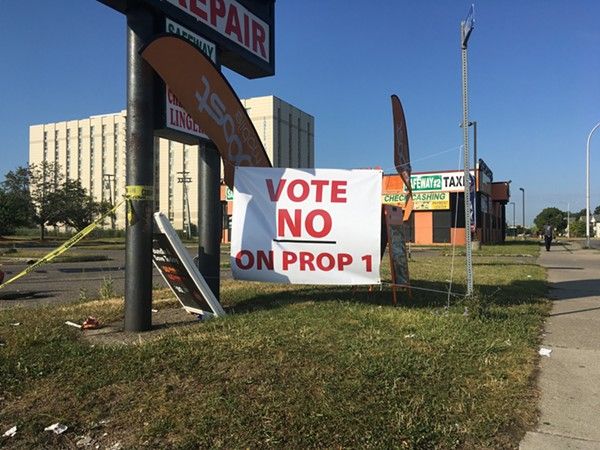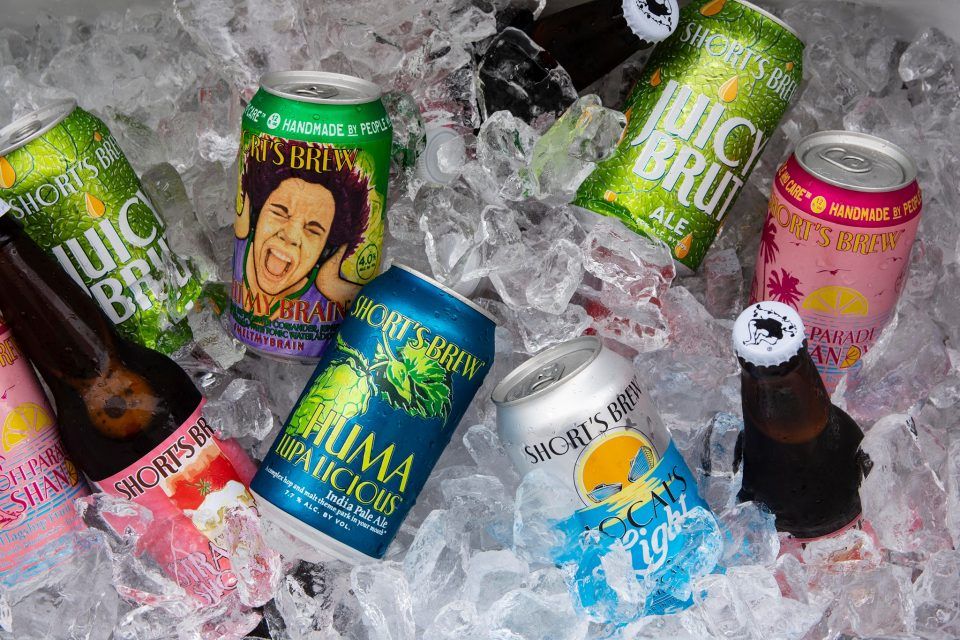Armed bandits plant deadly bull's-eye on rural medical marijuana growers
Rural Sanilac County has seen the dark side of medical marijuana.
In one township, pot robbers once tied a medical weed farmer to a chair and cut his ear with a hatchet, police say.
In another, four armed robbers burst into a home to steal medical marijuana growing inside.
In a third township, several masked gunmen blasted their way into a grower's house to steal pot and cash, but wound up with three dead friends instead.
That case got the feds involved.
In U.S. District Court this week, an indictment was unsealed charging three Flint men with plotting an organized drug heist that involved masked gunmen storming a medical marijuana grower's home and shooting the homeowner in the leg.
They also brought a BB gun to shoot the owner's dogs, records show, though the heist didn't go as planned. The homeowner and dogs survived. His friend came to his rescue, emerging from a back bedroom with a gun and firing away, killing two of the robbers.
A third suspect killed himself two days later in jail. A fourth man, Preston Xavier Jack, pleaded guilty to armed robbery in state court and is now serving 10-20 years in prison. He was once dubbed the lone survivor of the heist.
But there were more.
Almost two years after the botched robbery, the FBI identified three more defendants: Paul Drinkwine, Justin Cooper, John Williams — all from Flint, and all charged in the indictment with multiple crimes.
Meanwhile, the local sheriff believes there are still more suspects out there who were involved in the heist that involved three getaway cars and 200 pounds of marijuana.
"This indictment only opens the door. I believe there are several more involved," said Sanilac County Sheriff Garry Biniecki, who was relieved when the FBI intervened. "Let's face it. We're a small sheriff's office ... The feds were all over it ... After almost two years, we're getting to the right people."
Tied up, Left to die
Biniecki believes drug dealers targeting mom and pop growers in rural areas is a big problem, noting his county has seen three armed robberies in just over a year.
"I've said it all along -- (marijuana) may be legal, but people are doing illegal things with it," Biniecki said.
And, they're doing illegal things to get it, added Biniecki, noting he speaks from experience:
"Drug dealing is dangerous business, and anyone who doesn't think that is crazy. It doesn't matter whether the drugs are legal or not," Schneider told the Free Press. "For example, opioids are legal drugs, but they are still being trafficked unlawfully ... and marijuana is still going to have a black market."
And when the black market is involved, along with guns and violence, the federal government — which still doesn't recognize marijuana as a legal drug — will get involved.
"We've never gone after low-level people. This is not what our office does. And we won't now. But these types of offenses are not low-level. They're violent," said Schneider, referring to the Greenleaf Township case.
Detroit's FBI chief Timothy Slater also emphasized the violence involved in the rural marijuana heist that triggered federal charges.
"This robbery created an extraordinarily dangerous situation, putting the lives of the residents and the lives of the robbers at risk," Slater said.
Violence aside, federal authorities said they also pursue marijuana cases where money laundering is involved, as was the recent case with Detroit's Holy Moly Donut Shop. Federal prosecutors said the donut shop was a front for a marijuana ring that laundered money through a sham dispensary that was located next door.
Last month, the owner of the donut shop, Victor Attisha, cut a deal in the case and pleaded guilty to conspiracy to manufacture and possession with intent to distribute marijuana. He faces at least five years in prison when he is sentenced in November. One of his accomplices in the case received five years in prison; another got 21 months.
'This is going to continue'
According to court documents, the U.S. Attorney's office and interviews with police, here is what what happened in the township of about 800 people that caught the FBI's attention:
On Nov. 18, 2017, at least seven men gathered at a home in Flint to hatch out a plan to rob a medical marijuana growing operation on Holbrook Road in Greenfield Township.
The next day, the men gathered up their guns and headed to the rural township in three cars, stopping for gas at a Marathon station and buying some items needed for the robbery. They bought a package of black T-shirts, cutting the sleeves to use as face masks during the holdup. They also purchased two boxes of leaf and lawn bags to stash away the marijuana and cash they intended to steal.
One man also bought a black stocking cap to wear during the robbery.
At about 5:45 a.m. they parked near the grower's house. At least two of them had scouted the place a week earlier. They knew large amounts of medical marijuana were stored in a shed. So they came back with a bigger crew.
They slid on their gloves and face masks, grabbed hold of their guns and burst through the front door, opening fire. The homeowner was shot in the leg. Another man in the house appeared with a gun. He shot back, killing two of the attackers. The place emptied. Sirens came blaring.
The shooting triggered a manhunt for the runaway pot robbers, complete with a chopper, dozens of cops and road closures.
Locals were so frightened that they cited the drug shooting as a reason for not wanting a faith-based drug rehab center located in the township. The Planning Commission voted against the center in September 2018.
“We recently, within the last year, had a drug-related shooting, where three people were shot and two were dead,” Planning Commission member Ken Brown said following the vote to reject the drug rehab center. “There [were] two people who got away. And there was a manhunt that pretty much locked down the area ... People are on edge to that kind of stuff right now in this community. We don’t want to jeopardize their safety.”
The two dead robbers were identified as Quantize Bruce, 20, and Keith Saunders, 26, both of Flint. Another suspect, Stephen Shimmel, was found hanging in his jail cell two days after his arrest.
Meanwhile, Schneider believes more marijuana-related crimes are in store for Michigan, which legalized adult recreational use of marijuana last year.
"A lot of people don't know what we've gotten ourselves into," Schneider said. "This type of conduct is going to continue."
Rural Sanilac County has seen the dark side of medical marijuana.
In one township, pot robbers once tied a medical weed farmer to a chair and cut his ear with a hatchet, police say.
In another, four armed robbers burst into a home to steal medical marijuana growing inside.
In a third township, several masked gunmen blasted their way into a grower's house to steal pot and cash, but wound up with three dead friends instead.
That case got the feds involved.
In U.S. District Court this week, an indictment was unsealed charging three Flint men with plotting an organized drug heist that involved masked gunmen storming a medical marijuana grower's home and shooting the homeowner in the leg.
They also brought a BB gun to shoot the owner's dogs, records show, though the heist didn't go as planned. The homeowner and dogs survived. His friend came to his rescue, emerging from a back bedroom with a gun and firing away, killing two of the robbers.
A third suspect killed himself two days later in jail. A fourth man, Preston Xavier Jack, pleaded guilty to armed robbery in state court and is now serving 10-20 years in prison. He was once dubbed the lone survivor of the heist.
But there were more.
Almost two years after the botched robbery, the FBI identified three more defendants: Paul Drinkwine, Justin Cooper, John Williams — all from Flint, and all charged in the indictment with multiple crimes.
Meanwhile, the local sheriff believes there are still more suspects out there who were involved in the heist that involved three getaway cars and 200 pounds of marijuana.
"This indictment only opens the door. I believe there are several more involved," said Sanilac County Sheriff Garry Biniecki, who was relieved when the FBI intervened. "Let's face it. We're a small sheriff's office ... The feds were all over it ... After almost two years, we're getting to the right people."
Tied up, Left to die
Biniecki believes drug dealers targeting mom and pop growers in rural areas is a big problem, noting his county has seen three armed robberies in just over a year.
"I've said it all along -- (marijuana) may be legal, but people are doing illegal things with it," Biniecki said.
And, they're doing illegal things to get it, added Biniecki, noting he speaks from experience:
- In May 2016, Biniecki's office responded to a robbery involving a man and a woman who attacked a medical marijuana grower for his pot and money, tying him to a chair cutting his ear with a hatchet. "He was left tied up in the home and left to bleed to death," Biniecki said. "We found him tied up with his ear hanging by a thread." The man survived and the suspects were caught and successfully prosecuted, he said.
- In November 2016, Biniecki's office responded to another medical marijuana robbery, this one in Minden Township. Four armed robbers burst into a home that grew medical weed in what turned out to be part of an inside job, he said. The suspects were arrested, charged, convicted and went to prison, he said. No one got hurt.
- In November 2017, at least seven armed robbers attacked a medical marijuana growing facility in Greenleaf Township. That time, three people ended up dead and the FBI got involved. Authorities believe the suspects were hoping to sell the stolen marijuana on the black market as part of a bigger drug ring.
"Drug dealing is dangerous business, and anyone who doesn't think that is crazy. It doesn't matter whether the drugs are legal or not," Schneider told the Free Press. "For example, opioids are legal drugs, but they are still being trafficked unlawfully ... and marijuana is still going to have a black market."
And when the black market is involved, along with guns and violence, the federal government — which still doesn't recognize marijuana as a legal drug — will get involved.
"We've never gone after low-level people. This is not what our office does. And we won't now. But these types of offenses are not low-level. They're violent," said Schneider, referring to the Greenleaf Township case.
Detroit's FBI chief Timothy Slater also emphasized the violence involved in the rural marijuana heist that triggered federal charges.
"This robbery created an extraordinarily dangerous situation, putting the lives of the residents and the lives of the robbers at risk," Slater said.
Violence aside, federal authorities said they also pursue marijuana cases where money laundering is involved, as was the recent case with Detroit's Holy Moly Donut Shop. Federal prosecutors said the donut shop was a front for a marijuana ring that laundered money through a sham dispensary that was located next door.
Last month, the owner of the donut shop, Victor Attisha, cut a deal in the case and pleaded guilty to conspiracy to manufacture and possession with intent to distribute marijuana. He faces at least five years in prison when he is sentenced in November. One of his accomplices in the case received five years in prison; another got 21 months.
'This is going to continue'
According to court documents, the U.S. Attorney's office and interviews with police, here is what what happened in the township of about 800 people that caught the FBI's attention:
On Nov. 18, 2017, at least seven men gathered at a home in Flint to hatch out a plan to rob a medical marijuana growing operation on Holbrook Road in Greenfield Township.
The next day, the men gathered up their guns and headed to the rural township in three cars, stopping for gas at a Marathon station and buying some items needed for the robbery. They bought a package of black T-shirts, cutting the sleeves to use as face masks during the holdup. They also purchased two boxes of leaf and lawn bags to stash away the marijuana and cash they intended to steal.
One man also bought a black stocking cap to wear during the robbery.
At about 5:45 a.m. they parked near the grower's house. At least two of them had scouted the place a week earlier. They knew large amounts of medical marijuana were stored in a shed. So they came back with a bigger crew.
They slid on their gloves and face masks, grabbed hold of their guns and burst through the front door, opening fire. The homeowner was shot in the leg. Another man in the house appeared with a gun. He shot back, killing two of the attackers. The place emptied. Sirens came blaring.
The shooting triggered a manhunt for the runaway pot robbers, complete with a chopper, dozens of cops and road closures.
Locals were so frightened that they cited the drug shooting as a reason for not wanting a faith-based drug rehab center located in the township. The Planning Commission voted against the center in September 2018.
“We recently, within the last year, had a drug-related shooting, where three people were shot and two were dead,” Planning Commission member Ken Brown said following the vote to reject the drug rehab center. “There [were] two people who got away. And there was a manhunt that pretty much locked down the area ... People are on edge to that kind of stuff right now in this community. We don’t want to jeopardize their safety.”
The two dead robbers were identified as Quantize Bruce, 20, and Keith Saunders, 26, both of Flint. Another suspect, Stephen Shimmel, was found hanging in his jail cell two days after his arrest.
Meanwhile, Schneider believes more marijuana-related crimes are in store for Michigan, which legalized adult recreational use of marijuana last year.
"A lot of people don't know what we've gotten ourselves into," Schneider said. "This type of conduct is going to continue."



